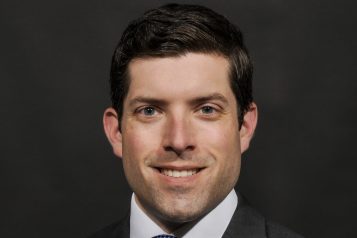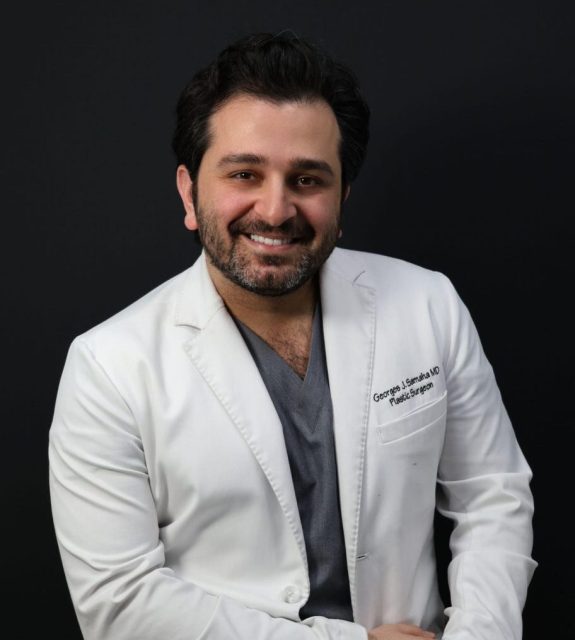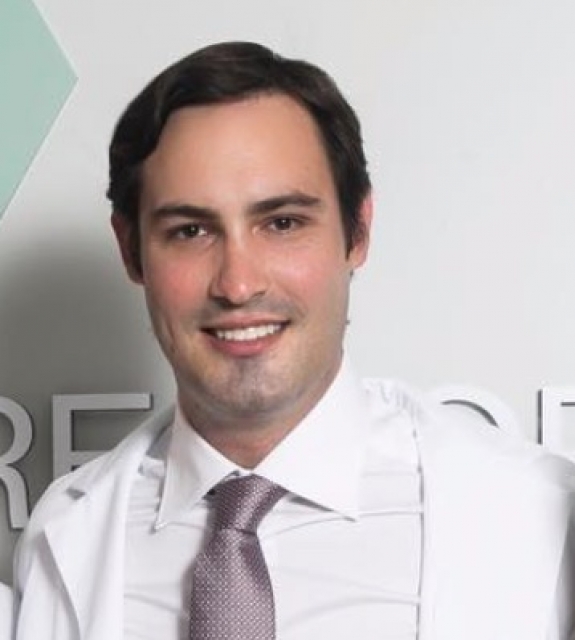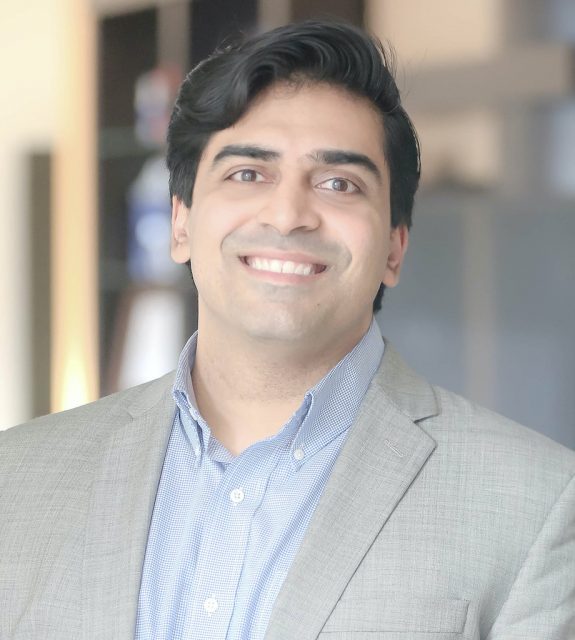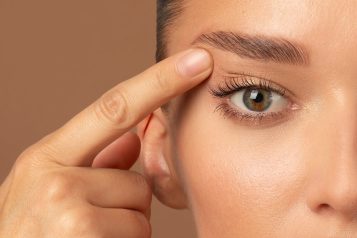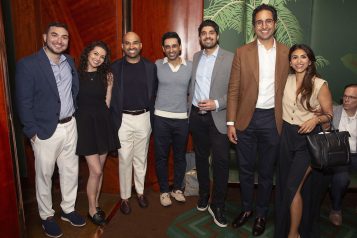
For some, entering the field of medicine has been on their minds since a young age, while for others, this decision has taken tons of thought. Regardless of the field of medicine you'd like to enter, it still requires a significant amount of time, energy, and dedication to get to where you want to be. Aware of the commitment, Haute Beauty got to talking with Haute Beauty experts to find out what words of wisdom they'd give the next generation of medical professionals - you. Here's what they shared, based on their own experience:
Dr. Brian K. Machida | Face | Los Angeles
First, if someone is looking in general at medicine, it's a big sacrifice on your time and the years spent studying. You have to be entering the field of medicine for the right reasons. Second, for those in medical school contemplating the field, interest in my specific field is important. Also, you will have to go through a surgical residency and be prepared for a life of surgery which is more exhausting and stressful than a non-surgical field. Finally, you will have to expect to do more years of training than most doctors.
For more information, visit Dr. Machida's website, Instagram, or Facebook!
Dr. Viraj J. Mehta | Eyelid Surgery, Oculoplastic | DMV
Oculofacial Plastics and Orbital Surgery (or simply Oculoplastics) is a phenomenal field where we get to help a huge diversity of patients of all ages. My youngest patient ever was only a month or two old, and my oldest was 101 years old! After 4 years of college and 4 years of medical school, I had to go through another 4 years of Residency, then another 2 years of Fellowship training before I started working in the Washington DC area. As Oculoplastics surgeons, we have to solve some of the most complex issues on the face, around the eyes, and even behind the eyes. For anyone that wants to enter this field - a medical student, college student, physician assistant, or nurse - my several pieces of advice are: you have to have an extremely strong work ethic, pay attention to fine detail, be creative and innovative, and really enjoy working with patients. It's a long road, but totally worth it!
For more information on Dr. Mehta, visit his website, Instagram, or Facebook!
Dr. Daisy Ayim | Body | Houston
The best advice to anyone interested in pursuing a similar career path is to be clear about your vision even when the journey seems unattainable. You must continue to press on, and your core values will guide your decision-making. I have always felt staying true to oneself in any process makes it meaningful and worthwhile.
For more information, visit Dr. Ayim's website, Instagram, or Facebook!
Dr. S. Alexander Earle | Body & Breast | Miami/Fort Lauderdale
The advice I would give someone who wants to be a plastic surgeon is that they have to love it. It is a long and challenging road, so in order to be happy, you have to truly enjoy what you are doing. I would also add that one should embrace technology that improves the experience and safety of patients. And while surgery can be technical, it’s important to view yourself not only as a doctor but as an artist who shapes, sculpts, and creates using the body as a canvas.
For more information, visit Dr. Earle's website, Instagram, or Facebook!
Dr. Samuel Lin | Nose | Boston
Medicine is a broad field with many different opportunities available over a lifetime. Certainly, one of the most important and key reasons for deciding to go into medicine is a genuine desire to help people. Otherwise, it is a very long road, which includes college, medical school, residency training, and potentially fellowship training. The opportunity cost of all those years of schooling and training can understandably weigh on a person’s decision-making, and medicine is not for everyone.
Personally, I calculated that I had completed 29 grades of school/clinical training, all said and done! However, I would not have changed a thing. I enjoy my job and my additional role as an educator actually expanded during the pandemic, with a more global audience to teach to use the beauty of virtual platforms. There are individuals worldwide who want to train in the United States, and my colleagues, for instance, started a mentoring/coaching group, IMG Match, to help those find residency training positions in the US. Medicine is a very rewarding field; it is amazing to give back to humanity and help others throughout a career.
For more information, visit Dr. Lin's website, Instagram, or Facebook!
Dr. Jeffrey Lee | Breast | Boston
Entering the field of medicine usually starts at the undergraduate level. I can't offer advice to anyone deciding to become a doctor, but I can be more specific and offer some guidance to anyone wanting to become a plastic surgeon. The best advice is to prepare for many years of school and training. You are looking at 4 years of undergraduate, 4 years of medical school, and anywhere between 6 and 12 years of postgraduate surgical residency/fellowship. It is a long road, and you essentially give up your 20s and part of your 30s. I think plastic surgery is a great field, and I love every minute of it. It was well worth it for me, but I can tell you that most people aren’t ready for that kind of commitment. I saw many people on my journey change their minds, which was the right decision for them. Personally, I absolutely love plastic surgery, and I would do it all over again in a heartbeat.
For more information, visit Dr. Lee's website, Instagram, or Facebook!
Dr. Ella Faktorovich | Vision | San Francisco
You have to love intraocular surgery. As soon as you start your Ophthalmology residency (or shortly thereafter), you will begin doing cataract surgery. It is one of the most sophisticated microsurgeries and takes a lot of patience and skill to do it well. While there is a learning curve, and understandably it will take some time to learn the surgery, you have to have fundamental love for this type of work. Also, you have to know that you can do it well. This is pretty much what you’ll be doing most of the time in residency, and this is how you will be evaluated and how your surgical skills will be judged. While in medical school, we don’t routinely get opportunities to do microsurgery, let alone intraocular surgery. This means that, as a medical student, you must actively seek out opportunities to do intraocular surgery or microsurgery with tiny instruments under the microscope. I had such an opportunity when I decided to pursue research on retinal transplantation in medical school. I remember experiments lasting 22 hours straight, starting with retinal harvesting and ending up with transplanting tiny retinal sheets into the subretinal space of tiny rat eyes. I learned that I enjoyed the intense focus of such work. I learned that I was good at it. I also learned strategies to keep my hands steady and that, after operating for 20 hours, Diet Coke was better than coffee in keeping me awake and alert without causing my hands to shake.
You have to enjoy interacting with the entire patient, not just their eyes. If you think that Ophthalmology is a great specialty because it lets you focus on one little part of the body and not have to engage with the patient, you are mistaken. If you don’t love listening to and speaking with patients and think you can just focus on doing a good job on their eyeballs, patients will not like you, they won’t follow your treatment recommendations, and they won’t refer other patients to you. You may be perceived as distant and cold, whereas most patients want to feel their doctor is not only competent but also kind and compassionate. The best advice on patient care I have ever received in medical school was given by an Ophthalmology attending. “You have to give a patient hope,” he said. It was such a profoundly humanitarian statement, and it reminds me every day that while I operate on two tiny organs, I am a doctor, and I am treating a patient. And I love that.
You have to be passionate about technology, especially lasers. Ophthalmology is one of the most technologically diverse fields in medicine. From diagnoses to treatments, innovations in technology drive ophthalmology forward. Because of the unique structure of the eye, including many transparent parts, we rely on different types of lasers to improve and preserve eyesight. You have to have a passion for lasers and a strong drive to engage in independent study to understand laser-tissue interaction. Understanding the basic science of ocular wound healing will create a solid foundation for evaluating the safety and efficacy of different technologies as they are introduced into the field throughout the years.
For more information on Dr. Faktorovich visit his website, Instagram, or Facebook!







